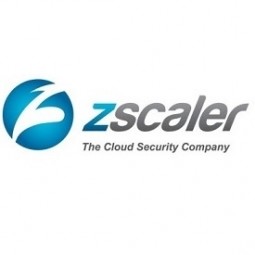Technology Category
- Drones - Drone Payloads & Accessories
- Platform as a Service (PaaS) - Application Development Platforms
Applicable Industries
- Automotive
- Retail
Applicable Functions
- Maintenance
- Quality Assurance
Use Cases
- Traffic Monitoring
- Transportation Simulation
Services
- Cloud Planning, Design & Implementation Services
- Hardware Design & Engineering Services
About The Customer
AutoNation is America’s largest auto retailer and a Fortune 500 company. Founded in 1996, it has over 10 million customers and counting. AutoNation owns and operates over 360 new and used car franchises throughout the U.S. and has more than 26,000 employees. The company supports more than 30 car manufacturers, each with slightly different requirements regarding connectivity, especially concerning Internet-connected vehicle diagnostic systems. AutoNation's business is rapidly expanding, and it needed a solution to secure its Internet-connected computer systems and IoT devices across its widely distributed locations.
The Challenge
AutoNation, America’s largest auto retailer, faced significant challenges in securing Internet-connected computer systems and IoT devices across its 360 locations. The company needed centralized controls for managing Internet security policies, monitoring and responding to threats, and ensuring reliable Internet access for employees. The challenge was to apply consistent and robust security across all retail and corporate locations. Each location’s network includes an Internet point of presence and a direct connection to AutoNation’s data center. The company also had to accommodate the slightly different connectivity requirements of the more than 30 car manufacturers it supports, especially concerning Internet-connected vehicle diagnostic systems. Routing all Internet traffic through the company’s data center was too inefficient and costly, and deploying Unified Threat Management (UTM) devices to each store was also unfavorable due to the increased cost of hardware, implementation, and maintenance.
The Solution
AutoNation turned to a cloud-based Internet security solution, Zscaler, to provide the Internet accessibility needed for retail business, while ensuring strong standardized security controls across all locations. Zscaler allows AutoNation to protect and control Internet-bound traffic and reduce the retail store technology footprint. Different policies can be applied for various needs in the retail location, all managed from a central administrative console. AutoNation began rolling out Zscaler platform services across the country, forwarding all its end-user Internet-bound traffic to the Zscaler cloud via GRE tunneling. The rollout was uncomplicated, with initial capabilities rolled out in two to three months, and the platform fully deployed in less than a year. Administration costs were slashed as there was no need to manage and maintain hardware, and capital expenses were replaced by the simple, predictable subscription cost of the Zscaler service.
Operational Impact
Quantitative Benefit

Case Study missing?
Start adding your own!
Register with your work email and create a new case study profile for your business.
Related Case Studies.

Case Study
Integral Plant Maintenance
Mercedes-Benz and his partner GAZ chose Siemens to be its maintenance partner at a new engine plant in Yaroslavl, Russia. The new plant offers a capacity to manufacture diesel engines for the Russian market, for locally produced Sprinter Classic. In addition to engines for the local market, the Yaroslavl plant will also produce spare parts. Mercedes-Benz Russia and his partner needed a service partner in order to ensure the operation of these lines in a maintenance partnership arrangement. The challenges included coordinating the entire maintenance management operation, in particular inspections, corrective and predictive maintenance activities, and the optimizing spare parts management. Siemens developed a customized maintenance solution that includes all electronic and mechanical maintenance activities (Integral Plant Maintenance).

Case Study
Improving Production Line Efficiency with Ethernet Micro RTU Controller
Moxa was asked to provide a connectivity solution for one of the world's leading cosmetics companies. This multinational corporation, with retail presence in 130 countries, 23 global braches, and over 66,000 employees, sought to improve the efficiency of their production process by migrating from manual monitoring to an automatic productivity monitoring system. The production line was being monitored by ABB Real-TPI, a factory information system that offers data collection and analysis to improve plant efficiency. Due to software limitations, the customer needed an OPC server and a corresponding I/O solution to collect data from additional sensor devices for the Real-TPI system. The goal is to enable the factory information system to more thoroughly collect data from every corner of the production line. This will improve its ability to measure Overall Equipment Effectiveness (OEE) and translate into increased production efficiencies. System Requirements • Instant status updates while still consuming minimal bandwidth to relieve strain on limited factory networks • Interoperable with ABB Real-TPI • Small form factor appropriate for deployment where space is scarce • Remote software management and configuration to simplify operations







